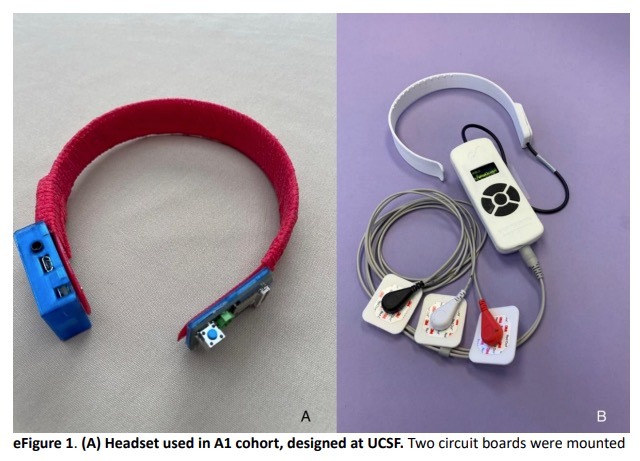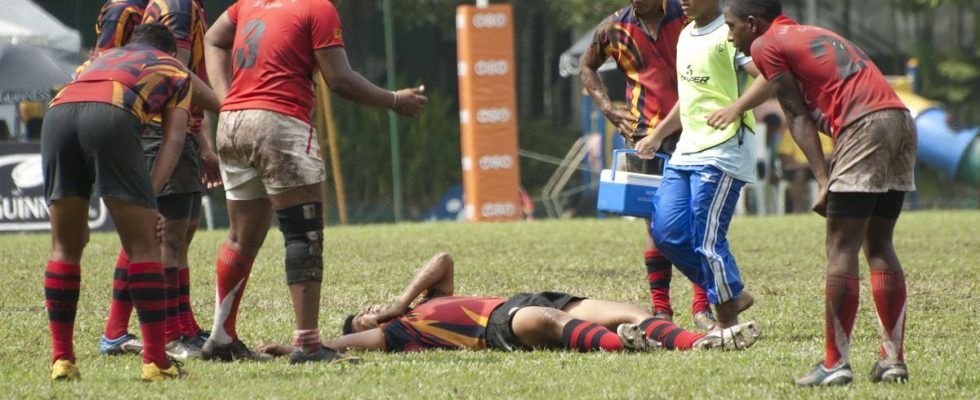Published on
Updated
Reading 3 mins.
Concussions in contact sports (American football and rugby in particular) worry athletes, sports doctors and parents. Can we better assess the consequences of such a shock? How do you know if the player is fit to return to the field? A new digital headset could be a game-changer.
A few weeks before the Rugby World Cup, this is an innovation that could change the way players’ health is taken into account. A new digital helmet would make it possible to more finely assess the consequences of a concussion to know if a player can return to the field.
Is the concussion protocol sufficient?
Since 2012, international rugby bodies have implemented a “concussion protocol”, which is based on an interrogation on immediate and deferred memory and balance exercises.
Beyond knowing if they are still rigorously applied, are these examinations sufficient? Is the impact of repeated concussions well assessed? At a time when on the other side of the Channel, several hundred players are suing the governing bodies of English, Welsh and international rugby, a new medical device could tomorrow better protect the health of practitioners.
A helmet to better assess brain damage
Although not yet approved by the Food and Drug Administration (FDA), the device could help athletes, clinicians, coaches and trainers, who are concerned about the long-term effects of repeated concussions related At the sports. One thinks in particular of chronic traumatic encephalopathy, Alzheimer’s and Parkinson’s diseases.
The headset – patented by UCSF and licensed by MindRhythm, a medical technology company – detected changes in what researchers call the “head pulse,” which are subtle pressures exerted on the skull when the heart is contracted.

Researchers at the University of California San Francisco observed the device’s performance in 101 young adults playing Australian rules football, who had suffered 44 concussions. According to the results of their study, the changes detected by the headset lasted an average of 12 days longer than the symptoms of the players.
According to Cathra Halabi, neurologist and first author of the study: “This raises concerns about relying on symptoms for return-to-play decisions. Activity deferrals may be recommended for symptom-free athletes if head pulse abnormalities persist“.
Of course, this helmet will not replace medical expertise, but it can improve it according to the authors: “We believe it can provide essential objective biometric measurements that can be used by athletes and healthcare professionals to decide when to resume play (…) The helmet is also used to monitor athletes afterwards in order to ensure that the measurements remain within the normal range“.
The risks if physical activity resumes too soon
Playing sports with a concussion puts the brain at increased risk of damage. “There is a rare condition called second impact syndrome, in which a second concussion soon after can cause almost immediate brain death,” Smith said.
More often, playing sports with a concussion can lead to an increased risk of later brain damage, due to symptoms such as delayed reaction time, impaired balance or vision.
“Recurring concussions in close succession can lead to more debilitating symptoms that last longer, preventing athletes from playing“, said Halabi.
Athletes with concussions may be able to record their own biometric measurements, the researchers noted. Clinicians or sports trainers would monitor the data remotely and provide advice on when it is safe to resume sports and other physical activities. While the helmet has been tested in young adults, its use could eventually be extended to minors.
MindRhythm hopes to obtain marketing authorization within a year.
